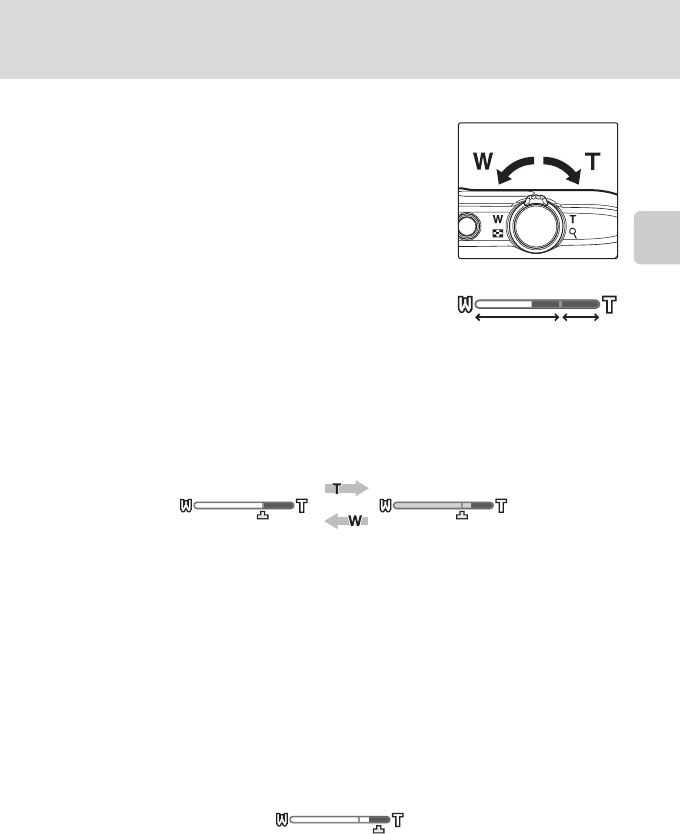
29
Step 2 Frame a Picture
Basic Photography and Playback: A (Auto) Mode
Using the Zoom
Rotate the zoom control to activate optical zoom. To
zoom in so that the subject fills a larger area of the
frame, rotate to g. To zoom out so that the area visible
in the frame increases, rotate to f.
• The zoom position is set at the maximum wide-angle
position when the camera is turned on.
• A zoom indicator is displayed at the top of the
monitor when the zoom control is rotated.
Digital Zoom
When the camera is zoomed in to the maximum optical zoom position, rotating
and holding the zoom control at g triggers digital zoom. The subject is magnified
up to 4× the maximum optical zoom ratio.
• The camera focuses at the center of the frame and the focus area is not
displayed when digital zoom is in effect.
C Digital Zoom and Interpolation
Unlike optical zoom, digital zoom uses a digital imaging process known as interpolation to magnify
images, resulting in slight deterioration of picture quality according to the image mode (A43) and
digital zoom magnification.
Interpolation is applied at zoom positions beyond V when taking still pictures. When zoom is
increased beyond the V position, interpolation is initiated and the zoom indicator turns yellow to
indicate that interpolation is being applied. The position of V moves to the right as image size
decreases, allowing for confirmation of the zoom positions at which shooting without interpolation
is possible at the current image mode setting.
• Digital zoom can be disabled from the Digital zoom option (A 156) in the setup menu
(A146).
Zoom out Zoom in
Optical zoom Digital
zoom
Maximum optical
zoom
Digital zoom
enabled
Small image size


















